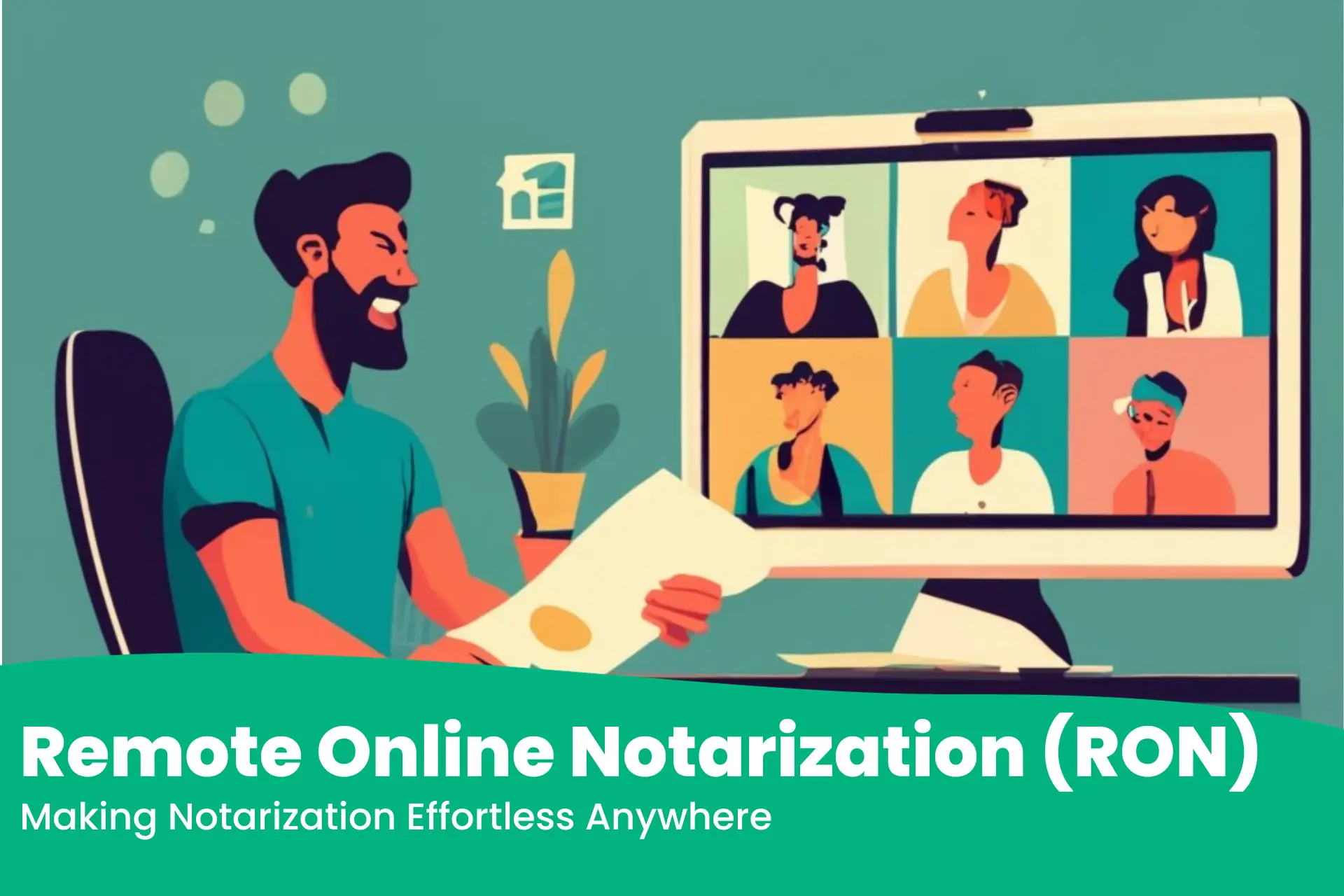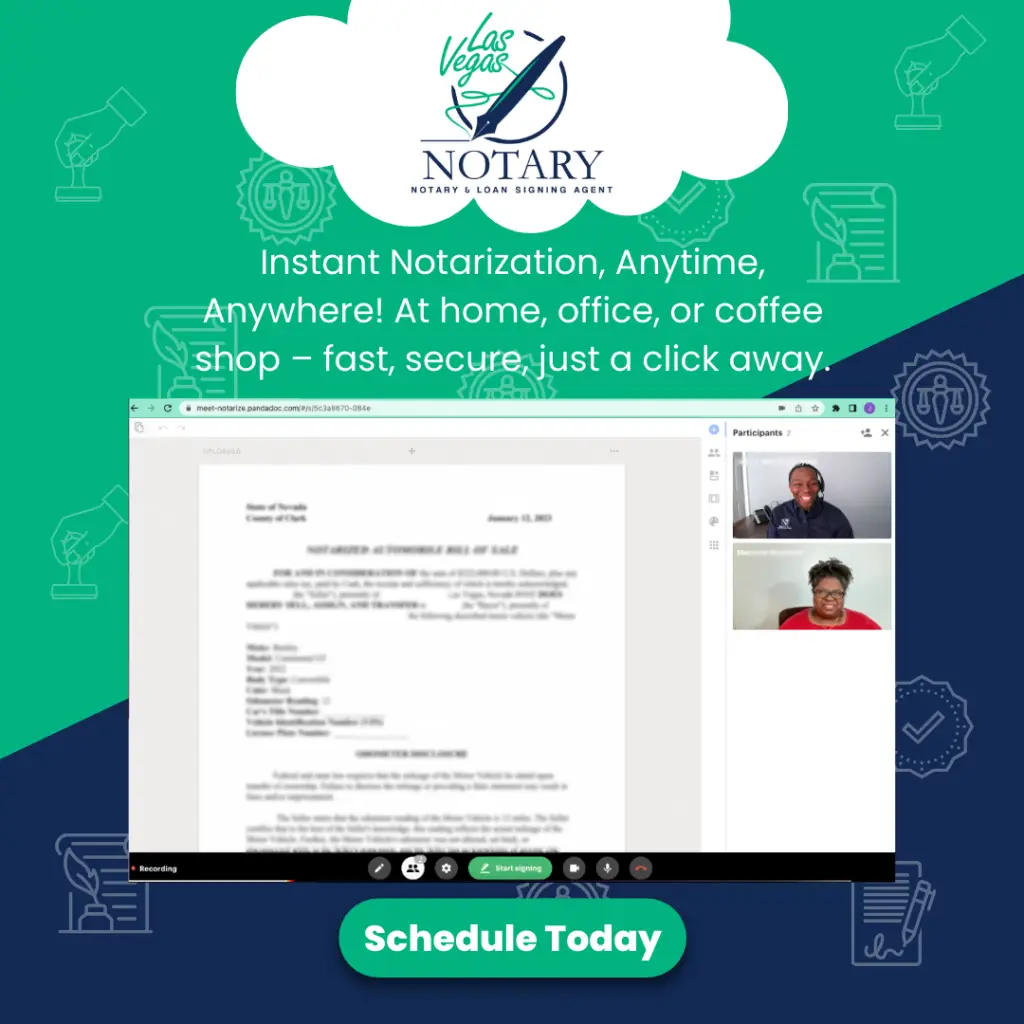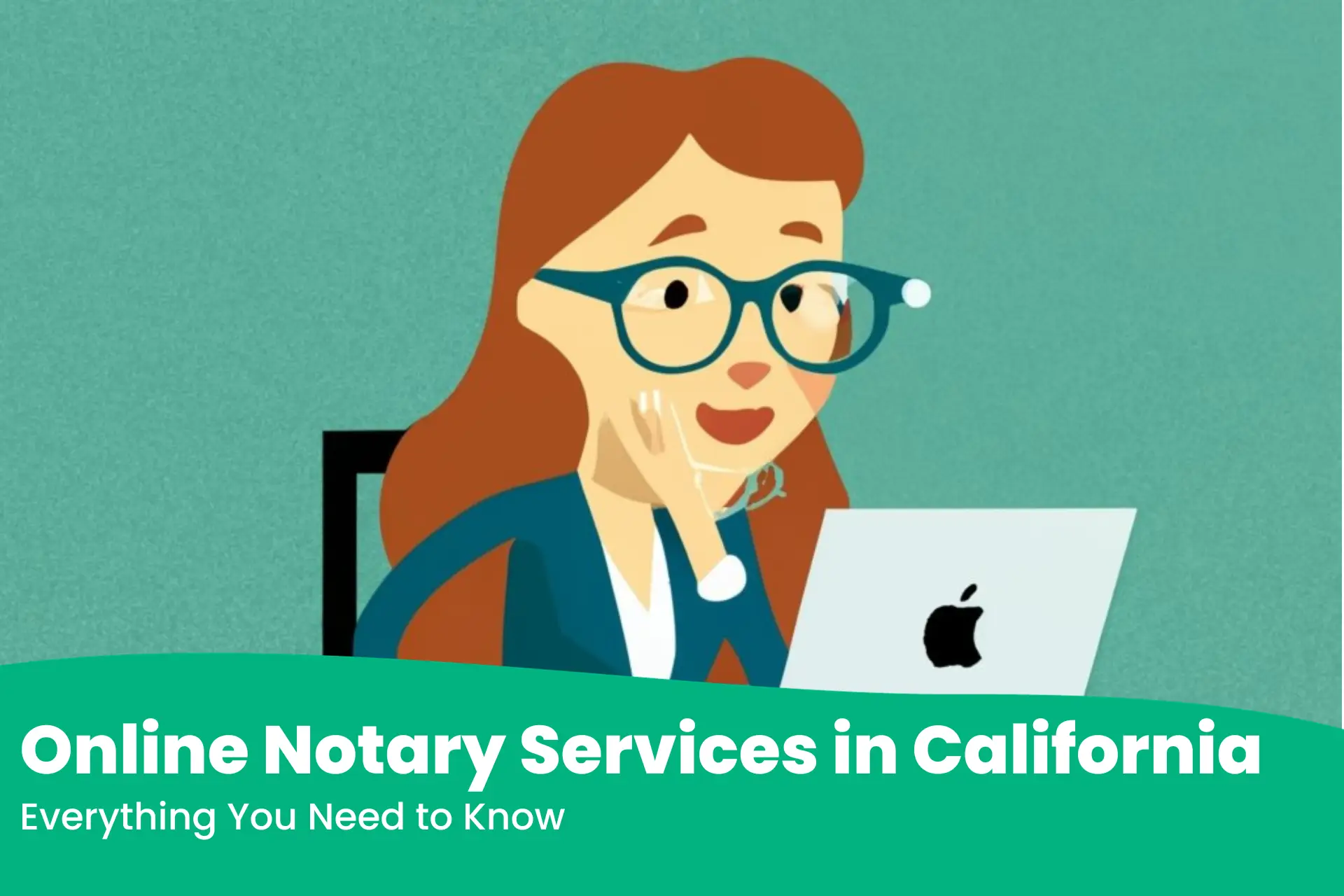In today’s interconnected world, where distance is no longer a barrier, the need for convenient and efficient notarization processes has become increasingly important. Imagine being on a trip, far away from your home or office, and suddenly realizing that an important document needs to be notarized urgently. The traditional notarization process would have required you to locate a notary public in that specific location and physically present yourself in front of them. However, thanks to the advent of Remote Online Notarization (RON), the game has changed.
What is Remote Online Notarization (RON)?
Remote Online Notarization, or RON, is a revolutionary method that enables individuals to get their documents notarized online, without the need for physical presence. RON leverages modern technology and secure digital platforms to connect clients with commissioned notaries remotely. It allows individuals to complete the notarization process conveniently from anywhere in the world, as long as they have an internet connection.
RON offers a wide range of benefits, including time-saving convenience, increased accessibility, and enhanced efficiency. Whether you’re a frequent traveler, a global businessperson, or simply someone looking for a hassle-free notarization experience, RON can be the solution you’ve been searching for.
The Birth of Remote Online Notarization
The concept of remote notarization was born out of the increasing need for more flexible notarization methods in a digital age. Traditional notarization required physical presence, which often posed challenges for individuals who were unable to be physically present due to various reasons such as distance, time constraints, or other commitments.
With the rapid advancement of technology and the increasing demand for digitization, the legal community recognized the need for a more accessible and efficient notarization process. Thus, Remote Online Notarization emerged as a solution to bridge the gap between the traditional notary process and the digital world.
How Does RON Work?
The process of Remote Online Notarization involves several key steps, all of which are carried out electronically. Here’s a breakdown of how RON works:
- Document Upload: The first step is to upload the document that needs to be notarized onto a secure online platform. The document can be in various formats, such as PDF, Word, or image files.
- Identity Verification: To ensure the integrity and authenticity of the notarization process, the client’s identity must be verified. This is typically done through a multi-factor authentication process, which may involve methods like knowledge-based authentication questions or biometric verification.
- Video Conference: Once the client’s identity is verified, a live video conference is initiated between the client and the notary. During this video conference, the notary will review the document, confirm its accuracy, and witness the signing of the document.
- Electronic Seal: After the document is signed, the notary affixes their electronic seal to the document. The electronic seal serves as a digital equivalent of the traditional notary stamp and indicates that the document has been notarized.
- Notary Journal: As with traditional notarization, the notary maintains a digital journal or record of the notarization process, including details such as the date, time, and type of notarization performed.
- Document Delivery: Once the notarization process is completed, and payment processed and cleared, the notarized document is securely delivered to the client electronically. The document retains its legal validity, as it has been notarized following the applicable laws and regulations.
The Geographic Flexibility of RON
One of the key advantages of Remote Online Notarization is its ability to serve individuals no matter where they are located. Unlike traditional notarization, which requires a physical in-person visit in the same location as the notary, eNotary allows clients to access notary services from different states or even different countries.
This geographic flexibility is made possible through the use of secure online platforms and video conferencing technology. As long as both the client and the notary are located in jurisdictions that allow RON, the notarization process can be completed seamlessly, regardless of the physical distance between them.
It’s important to note that while the client can be anywhere in the world, the notary must be physically present within their commissioned state. This requirement ensures that the notary operates within the legal boundaries and regulations of their jurisdiction.
The Role of the Notary in RON
In Remote Online Notarization, the notary plays a critical role in ensuring the legality and validity of the notarization process. While the client can be located anywhere, the notary must be physically present within their commissioned state.
The notary’s responsibilities in RON are similar to those in traditional notarization. They are responsible for verifying the identity of the client, reviewing the document to ensure its accuracy, and witnessing the signing of the document. Additionally, the notary must comply with all applicable laws, regulations, and ethical guidelines governing notarization in their jurisdiction.
The notary’s digital presence is facilitated through secure online platforms that provide a video conferencing interface for conducting the remote notarization process. This enables the notary to interact with the client, review the document, and affix their electronic seal to complete the notarization.
Trustworthiness of RON
One of the common concerns surrounding Remote Online Notarization is the trustworthiness and security of the process. Clients often wonder if RON can be as reliable and secure as traditional notarization methods.
It’s important to note that RON is designed with security and integrity in mind. Secure online platforms used for RON employ various measures to ensure the privacy and protection of client information, including encryption and secure data storage. Additionally, the identity verification process implemented in RON adds an extra layer of security to prevent fraud and unauthorized access.
To further enhance trustworthiness, many jurisdictions have implemented stringent regulations and standards for RON. These regulations often require secure technology platforms, data protection protocols, and compliance with identity verification procedures. By adhering to these regulations, RON service providers can establish a level of trust and confidence in the notarization process.
Legal Boundaries and Limitations of RON
While Remote Online Notarization offers numerous benefits, it is essential to understand the legal boundaries and limitations that govern its use. Each jurisdiction may have its own set of laws and regulations surrounding RON, and it’s crucial for both notaries and clients to operate within these legal guidelines.
Some common legal boundaries and limitations of RON include:
- Jurisdictional Restrictions: Not all states or countries have adopted RON legislation. It’s important to ensure that the jurisdiction in which the document is intended to be used recognizes and accepts electronically notarized documents.
- Document Types: Certain types of documents, such as wills, trusts, or real estate transactions, may have specific legal requirements that may not be compatible with RON. It’s essential to consult legal professionals to determine if RON is suitable for the specific document type.
- International Recognition: When dealing with international documents or cross-border transactions, it’s important to verify whether foreign jurisdictions recognize and accept electronically notarized documents.
By understanding and adhering to these legal boundaries and limitations, both notaries and clients can utilize RON effectively and ensure the legality and validity of notarized documents.
Benefits of RON for Travelers and Global Businesspersons
Remote Online Notarization offers significant advantages for individuals who are constantly on the move or engaged in international business activities. Here are some of the key benefits of RON for travelers and global businesspersons:
- Convenience: RON eliminates the need for physical presence, allowing individuals to notarize documents from anywhere in the world. This saves time and effort, especially for frequent travelers who may find it challenging to locate a notary in a foreign location.
- Time-Saving: RON streamlines the notarization process, reducing the time required to get documents notarized. This is particularly beneficial for individuals with tight schedules or urgent notarization needs.
- Cost-Effectiveness: RON eliminates the need for travel expenses associated with physically visiting a notary. This can result in significant cost savings, especially for those who frequently require notarization services.
- Flexibility: With RON, individuals can access notary services at any time, regardless of time zone differences. This flexibility is crucial for global businesspersons who may need to notarize documents outside regular business hours.
- Security: Secure online platforms used for RON employ advanced security measures to protect client information and ensure the integrity of the notarization process. This provides peace of mind for travelers and international businesspersons concerned about the security of their confidential documents.
Future of RON
As technology continues to advance and digital transformation becomes more prevalent, it is expected that Remote Online Notarization will play an increasingly prominent role in our daily lives. RON has already gained significant traction in many jurisdictions, and its acceptance is expected to grow further in the coming years.
The future of RON holds the potential for even greater integration and accessibility. With advancements in identity verification technology and secure online platforms, the notarization process is likely to become more streamlined and user-friendly. Additionally, the acceptance and recognition of electronically notarized documents by institutions and governments will continue to expand, further simplifying document authentication processes.
As we move forward, it’s essential for individuals and businesses to stay informed about the latest developments in RON. By embracing this innovative notarization method, we can unlock new possibilities and make notarization more accessible than ever before.
Acceptance of Electronically Notarized Documents
While Remote Online Notarization offers numerous benefits, it’s crucial to verify whether the intended recipient or institution will accept a document that has been electronically notarized. Not all jurisdictions or organizations recognize electronically notarized documents, and some may have specific requirements or processes for accepting them.
Before opting for RON, it’s recommended to confirm the acceptance of electronically notarized documents with the recipient or the relevant institution. This can help avoid potential challenges or delays in the document authentication process.
It’s worth noting that the acceptance of electronically notarized documents is continually evolving, and more jurisdictions and organizations are recognizing their validity. By staying informed and verifying acceptance beforehand, individuals can confidently utilize RON and enjoy its benefits without any complications.
Conclusion
Remote Online Notarization (RON) has revolutionized the way we notarize documents, making the process more accessible, convenient, and efficient. With RON, individuals can get their documents notarized from anywhere in the world, eliminating the need for physical presence.
RON offers numerous advantages, including geographic flexibility, time-saving convenience, enhanced security, and cost-effectiveness. However, it’s essential to understand the legal boundaries and limitations of RON and verify the acceptance of electronically notarized documents before proceeding.
As technology continues to evolve, it’s anticipated that RON will become increasingly integrated into our daily lives, simplifying notarization processes and expanding its recognition. By embracing this innovative solution, individuals and businesses can unlock new possibilities and experience a seamless notarization experience, no matter where their travels take them.





